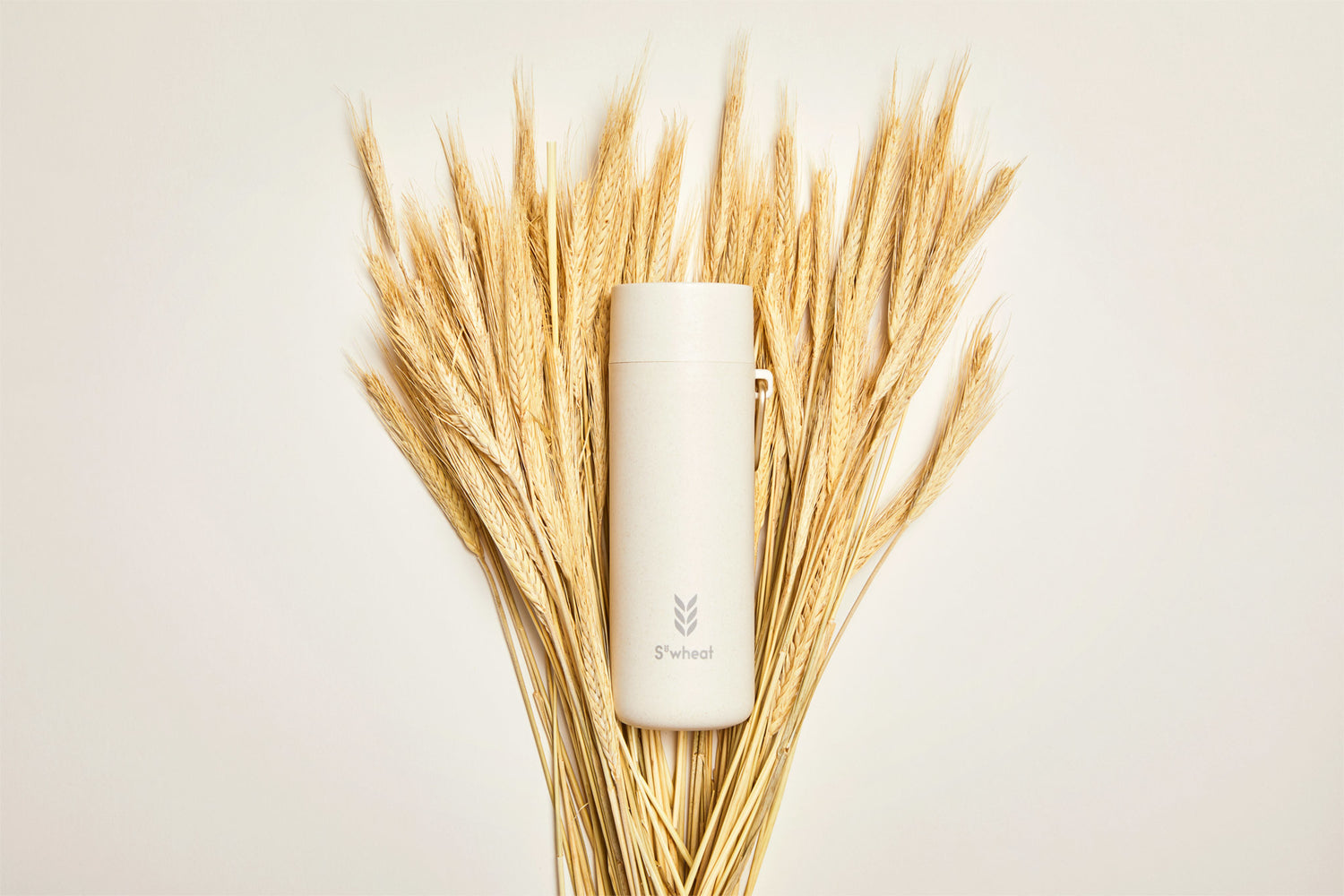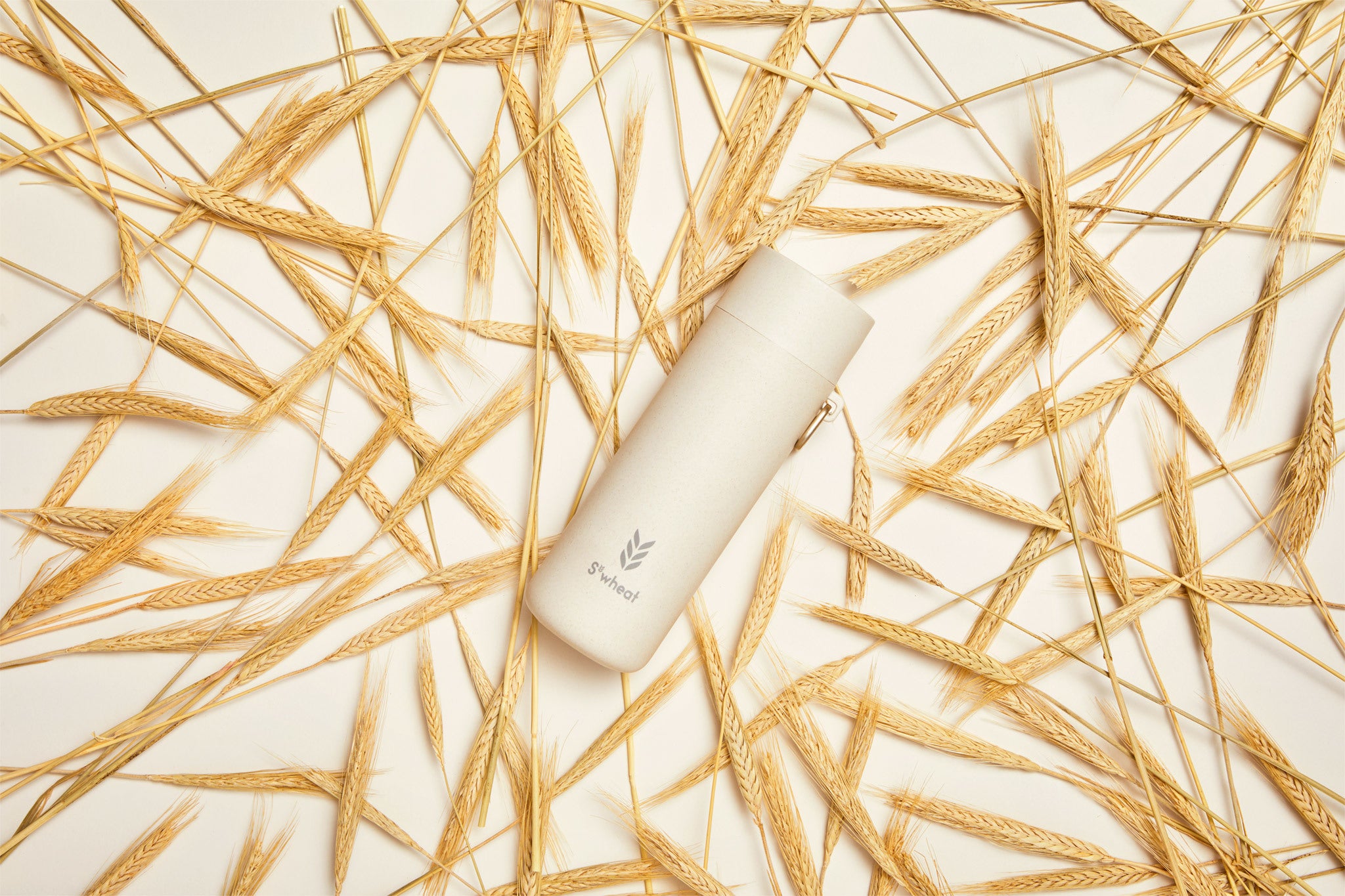As industry experts leading the way in the newest sustainable technology, we take a deeper look at how wheat straw plastic is changing everyday consumer products. Could this new eco-alternative to plastic be a game changer? Continue reading to learn more.
Plant-based plastics, also known as Bio-plastics, are creative new materials that have qualities and benefits similar to traditional plastics.
In contrast to regular plastic, which is generated from petroleum, bioplastic is made from a plant source. Wheat straw, bamboo fibre, rice husks, sugar cane, corn starch, and other plant-based polymers are all examples of plant based sustainable alternatives.
Wheat straw, like traditional plastics, is lightweight and durable, making it an innovative and sustainable alternative. Wheat straw is not made from fossil fuels, unlike conventional plastics.
Wheat straw is a form of edible grain that is used to produce foods like flour, bread, and wheat-derived goods like pasta all over the world. Wheat straw is a waste product that is frequently burned after the wheat grain is harvested; however, by repurposing this waste for sustainable, innovative materials and products, it becomes a terrific zero waste option.
Wheat straw fibre plastic is food safe certified, BPA free, and FDA approved, making it suitable for a variety of uses. Rather surprisingly, wheat straw is gluten free! This is one of the most frequently asked questions, and the answer may surprise you. Yes, wheat straw is gluten-free. This is due to the fact that wheat straw does not naturally contain gluten. Wheat straw fibre products can often be used by those following a gluten-free diet.
Are wheat straw products like plates and reusable water bottles safe?
Yes, wheat straw plastic products are safe. They can be microwaved, frozen and used for many years. Wheat straw products are also naturally anti-bacterial and anti-odour, it’s a win-win! Not all wheat straw fibre products contain Melamine, this is dependent on the manufacturer. At S’wheat we never use melamine in any of our products.
Is wheat straw plastic biodegradable?
Yes, Wheat straw plastic can be biodegradable in a range of methods. Some bioplastics like wheat straw can be composted at home, while others require industrial composting or will decompose in landfills over time.
Some other plant based plastics or bioplastics are biodegradable, whereas others aren't.
A single-use product must pass the EN13432 test in order to be labelled as biodegradable, so keep an eye out for this.
Some bio-plastics can be recycled through your local recycling programme. This means that the bio-plastic or wheat straw will be sorted and segregated in recycling plants using mechanical methods. After that, the material can be repurposed for new goods such as reusable water bottles, wheat bottles and wheat straw plates and dishes.
How long does it take for wheat straw to decompose?
Wheat straw plastic products can decompose in local industrial composting sites within 6-9 months or up to a maximum of 2 years (depending on manufacturer).
How long do wheat straw plastic products last?
Like traditional plastics, wheat straw plastics are extremely durable which makes them perfect for everyday products such as wheat straw reusable bottles, wheat coffee cups and wheat dishes. This also means that they will typically last 5 - 10 years and can be used daily.
Is wheat straw better than plastic?
Wheat straw is a by-product that is not over- or under-farmed; in fact, it is frequently burned, releasing carbon dioxide into the environment, making it a better choice than plastic.
It's also worth noting that wheat straw plants capture more carbon (CO2) from the air than they make during photosynthesis, resulting in a carbon-neutral output. Many plant-based bioplastics have this environmental benefit.
We can prevent single-use petroleum-based plastics from cluttering our landfills by developing more novel and imaginative uses for bioplastics like wheat straw plastic.




11 comments
Brenda Meyer
Does wheat straw cups coffee cups I drink out of them every day they don’t have micro plastics in them they don’t have any chemicals in them no toxins
Jenny
Biodegradable Polypropylene Additive is used to enhance the biodegradation of plastic by adding in hydrophilic parameters to the polymer chain. This allows microbial enzymatic action to reduce the structure of the polymer by utilizing macromolecules within the plastic polymer. So its a plastic with an additive that helps it breakdown? Does this mean that it can breakdown at end of life when composted? does this affect the longevity or durability? as ideally most things need to be designed for reuse not designed to be disposed of.
Liz Fisher
Are there PFAs in wheat straw plastic?
Shoukat Baloch
hello, we are suppliers of wheat straw based in Balochistan Pakistan. we want to stablish a plant to make kitchen ware. how can you help us regarding this.
S'wheat
Hi John, Gabrielle,
We use biodegradable PP in our bottles and unlike many other wheat straw products, we don’t include toxins such as melamine or BPA so the S’wheat bottle will biodegrade and won’t release any toxins.
Leave a comment
All comments are moderated before being published.
This site is protected by hCaptcha and the hCaptcha Privacy Policy and Terms of Service apply.